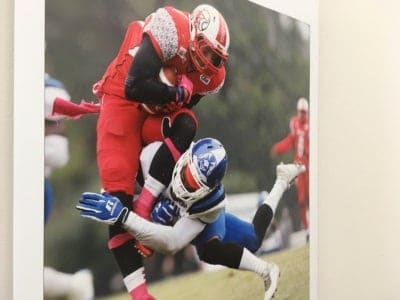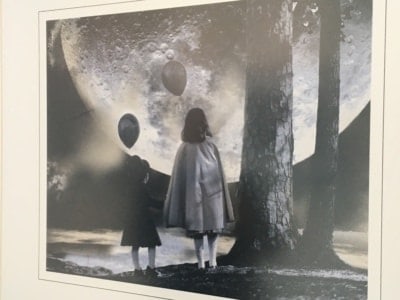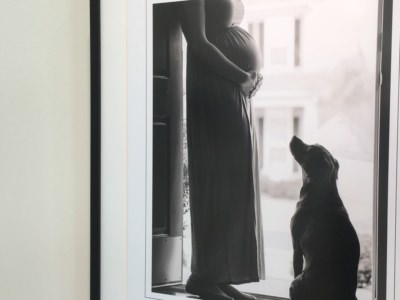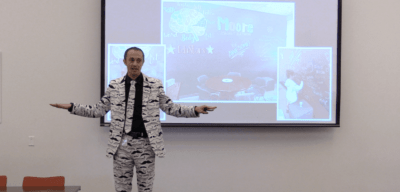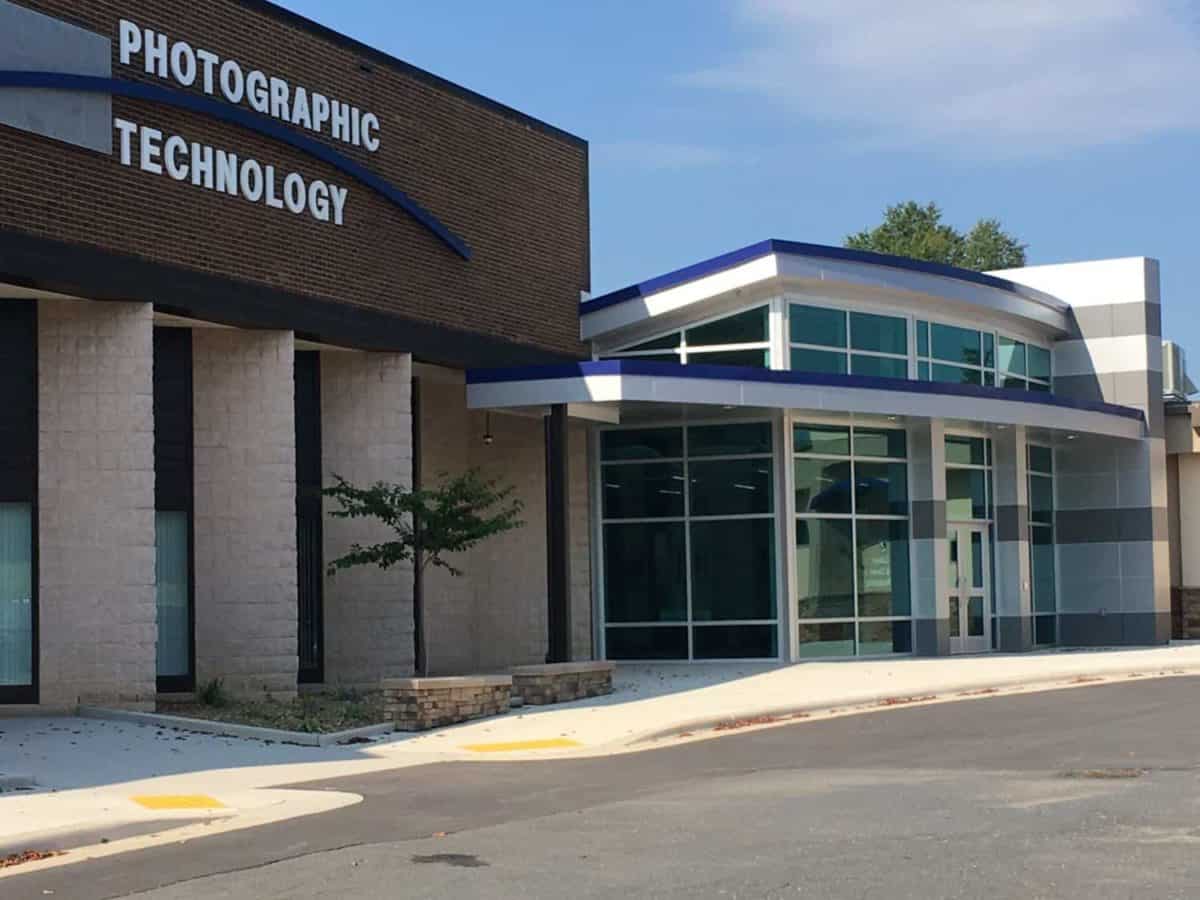

Vermont native Nathan Burton knew he wanted to pursue photography as a career after high school. He and his dad decided to tour some of the best schools in the country to find the right fit. They went to California, Colorado, and other nearby states to look at some of the top-rated institutions in the country, touring programs that ranged in price from $50,000 to $80,000 a year. When Burton came back home to reflect on his options, he was crestfallen.
“I didn’t really feel inspired or captivated by any of the programs,” he said.


While many of the schools offered good art programs, none of them focused more specifically on photography. In a last ditch effort, Burton’s dad was searching around on the internet for other options when he stumbled upon the two-year photography program at Randolph Community College (RCC) in Asheboro. It was an unlikely choice for Burton, who had seen what he thought was the cream of the crop when it came to photography programs.
“I was at first super skeptical … how could a community college have something that was greater?” he asked.
But his dad convinced him to travel down to the school, talk to the staff, and see what the program was all about. After seeing the program for himself, Burton had a change of heart.
“I was blown away. To have such a curriculum and philosophy and such a heavy emphasis on photography just makes this place stand out,” he said.
He moved down to the area and started the program with no regrets.
“It’s two years. I’m not going to get tremendous debt…it just seemed like the obvious decision,” he said.
Ranked as one of the best photography programs on the East Coast, Randolph Community College has been teaching photography students for more than 40 years. They train shutterbugs in either commercial photography, photojournalism, or portrait studio management in a 35,000 square foot facility, complete with green screen, all the latest equipment people in the industry use, and even some drones for students to learn how to fly and shoot with.
Jay Capers is the lead instructor for photojournalism with more than 25 years experience as a newspaper photographer at various organizations. He once worked at The Fayetteville Observer, so he knew well the reputation of the program when he was offered the job. He’s starting his seventh year on faculty now and said the program is unparalleled.
“I don’t think there is a newspaper or a magazine in the state that has not used our students as freelancers or staff,” he said.
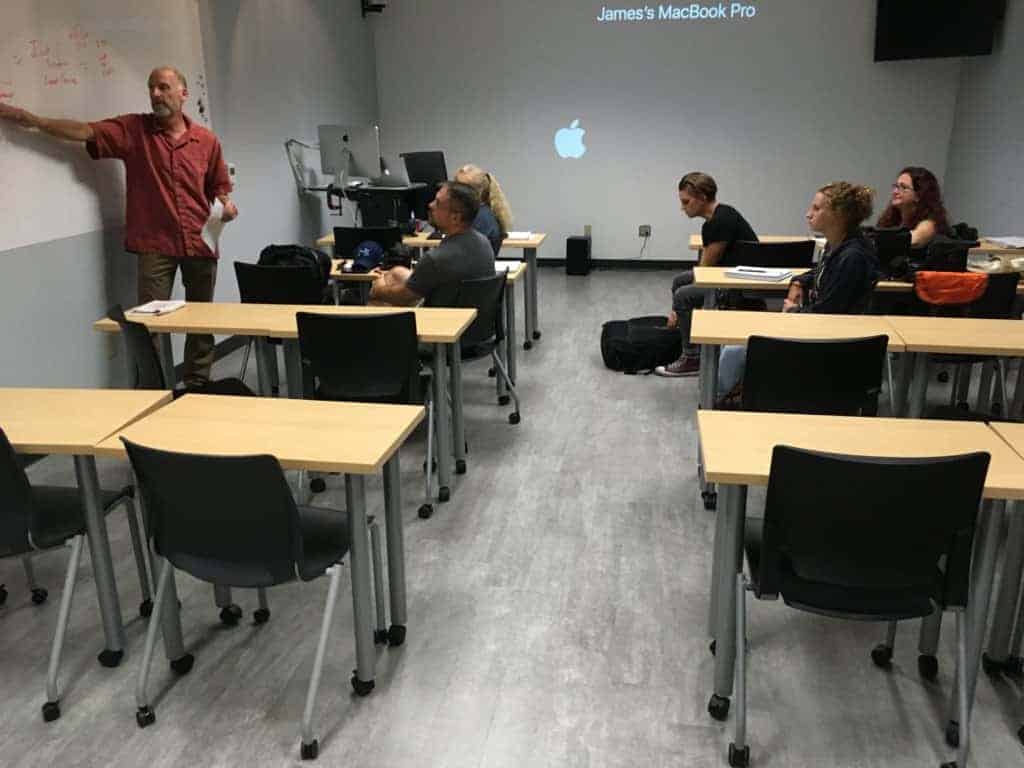

But he said that RCC’s emphasis is different than some programs in that it wants students not only to know how to take a good photo, but also how to stay afloat financially while they do it.
“We’re a blue collar school. It’s not an art school,” he said. “We train students to work and go make money at this.”
He talked about two graduates of the University of North Carolina at Greensboro who enrolled at RCC after they had already graduated. They learned the technical skills they needed to be photojournalists, but they didn’t know how to make a living doing it.
“They came here to figure out that part of the pie,” Capers said.
The school doesn’t just teach still photography anymore. Capers said that more and more, businesses expect their students to be able to do multimedia — photos and video. Randolph Community College prepares them to tackle whatever job is required of them.
Randolph Community College President Robert Shackleford said that students from the photography program get internships all over the world. And it’s the program that takes in more students from out of state than any other at the college. He said that people who work in that program are unusually happy with their jobs.
“We don’t have job turnover in that department,” Shackleford said.
Dhanraj Emanuel is the lead instructor of commercial photography at the college. He is a fourth-generation photographer who came to the United States from India where he was heavy into commercial photography. He came to the states to study art but returned to commercial photography, which was more lucrative.
Emanuel brought his experience from the business world into the classroom, and he said the process the photography program takes with students makes them sought after. He said he often hears from businesses that his students are the best trained on commercial shoots.
“People in the business are not afraid to let them touch this $30,000 camera or this $10,000 light,” he said. Often, graduates from RCC’s photography program are teaching other people at their internships or jobs how to use equipment.
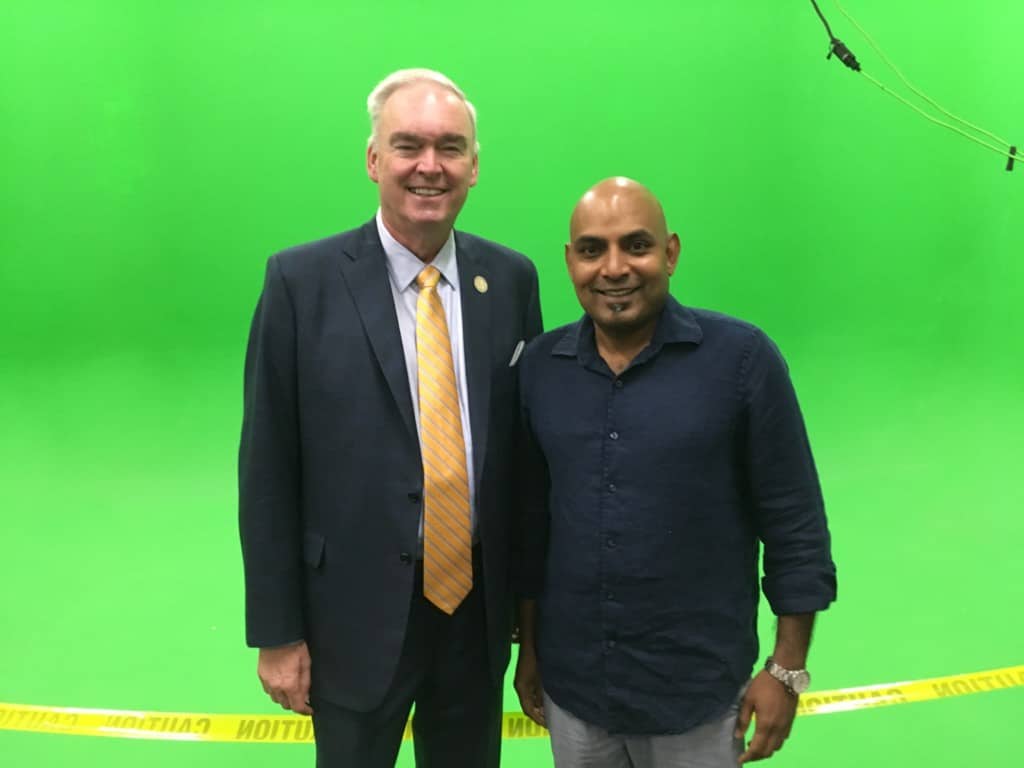

Emanuel said that every assignment his students take comes with a business aspect attached. They have to invoice to get paid, collect receipts for their expenses, purchase their supplies, hire models, and learn how much to charge for their services. And the photography program is tough, Emanuel says. Anybody who thinks otherwise is in for a rude awakening.
“People who think they’re going to come take photos for a couple years and get a degree are mistaken,” he said.
But while they work hard, they will reap the rewards as well. Emanuel mentioned a few students who went up to New York on an internship and never came back. They landed jobs in the industry.
Shackleford is extremely proud of RCC’s photography school and its reputation. For a fraction of the price of a four-year degree, students can get the training that will take them to leading jobs in the photography industry.
“You can go to major universities and not find anything close to this,” Shackleford said. “We made this program a priority.”


